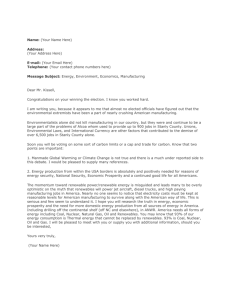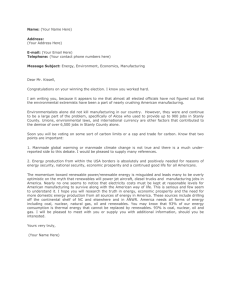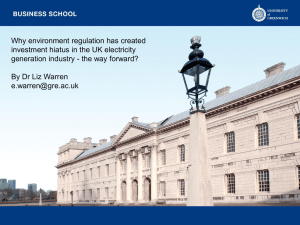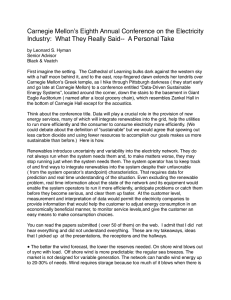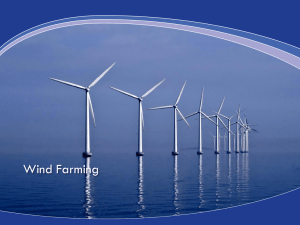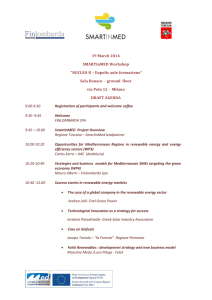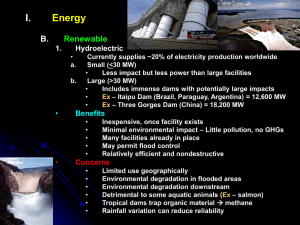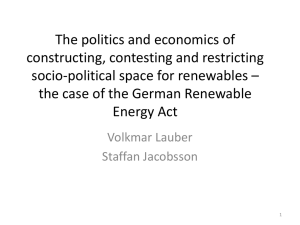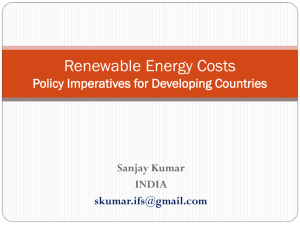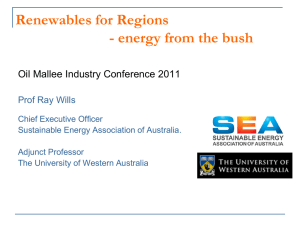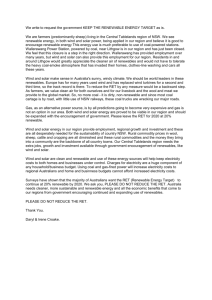Renewable Energy: A Solution to Pollution
advertisement
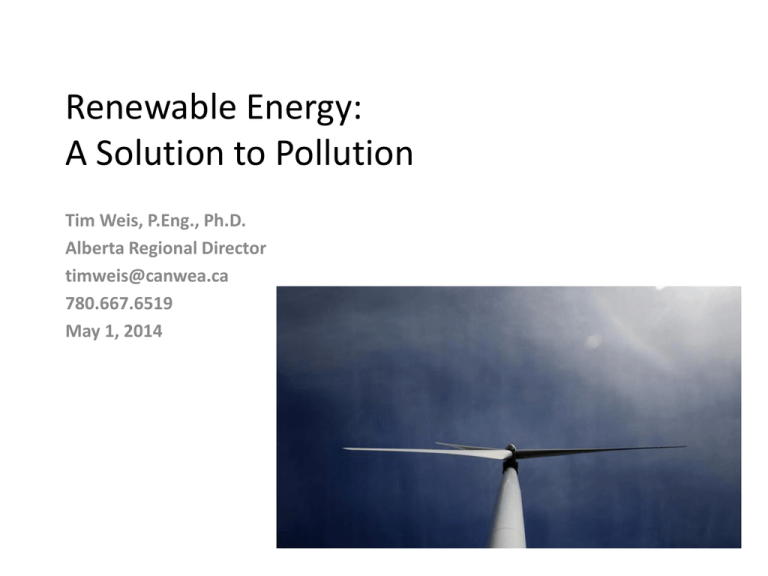
Renewable Energy: A Solution to Pollution Tim Weis, P.Eng., Ph.D. Alberta Regional Director timweis@canwea.ca 780.667.6519 May 1, 2014 About Tim • Alberta Regional Director • Professional Engineer • M.Sc. research on ice adhesion to wind turbine blades in subarctic • Ph.D. research on off-grid renewable energy Climate change “….could be the biggest global health threat of the 21st century” The Lancet 3 Canada’s greenhouse gas emissions Source: Environment Canada, National GHG Inventory Report 2009 Air pollutants from electricity sector How do we compare? PM formation - Edmonton Source: Clean Air Strategic Alliance. Fine particulate matter in the capital region (2010) Costs of air pollution from electricity generation • USA - National Research Council at request of 2005 Energy Policy Act – Effects of air pollution on human health, grain crop and timber yields, building materials, recreation, and visibility of outdoor vistas – Average damages: 3.2 ¢/kWh (2008) • Greenstone and Looney: – 3.4 ¢/kWh for non-climate damage (2010) So why wind? • • • • 9 Efficiency Electrify Renewables Heat + Power So why wind? Wind is a cost effective option New Electricity Supply Costs in Alberta Source: Solas Energy Consulting Wind can be developed at high levels Wind can be developed quickly Emissions Resulting from Danish Electricity Production (source: Danish Energy Agency) Tonnes CO2 (adjusted for exports and temperature) 29,000 27,000 25,000 23,000 21,000 19,000 17,000 15,000 1991 1993 1995 1997 1999 2001 2003 2005 2007 Integrating Renewables (NREL study) Net: CO2 ↓ 31.5% Net: NOx ↓ 19.5% Net: SO2 ↓ 18.5% Integrating renewables Denmark update • 52% wind by 2020 • 100% renewable electricity by 2035 • 100% renewable energy by 2050 – 171 Parliamentarians voted for 8 against. • “The conclusion being it has a cost to make a green transformation, but it also has a cost not to do it. I think this will work out to be the best insurance Denmark has ever (bought).” – Energy Minister Lidegaard Closer to home: Ontario Ross Island Wind/Diesel 60Hz 60Hz 50Hz 18 Courtesy of Powercorp, Australia Conclusion • Renewables can significantly reduce air pollution • We have working examples of renewables being deployed quickly and at high levels • Challenges remain – policy drives energy decision Thanks Tim Weis timweis@canwea.ca 780.667.6519
